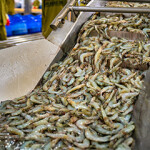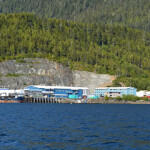Ocean Outcomes Japan merges with Seafood Legacy
Two NGOs active in promoting sustainable fisheries in Japan – Ocean Outcomes Japan and Seafood Legacy – have announced they will merge.
The organizations announced the merger in a joint press release, saying they plan to continue to lead the sustainable seafood movement in Japan, transitioning Japanese seafood producers and suppliers towards global best practices.
Shunji Murakami is the Japan Program Director for Portland, Oregon, U.S.A.-based Ocean Outcomes and works out of the organization’s Tokyo office. The Japan program will merge with Seafood Legacy and Murakami will become Seafood Legacy’s vice president and chief operating officer.
Ocean Outcomes’ Japan Program mainly manages fishery improvement projects (FIPs), and recently also an aquaculture improvement project (AIP). The goal of each FIP is ultimately to bring a fishery up to the Marine Stewardship Council’s “unconditional pass” level. Ocean Outcomes follows the Conservation Alliance for Seafood Solutions guidelines, and it has signed a memorandum of understanding with MSC to develop methods for cooperation.
Ocean Outcomes was spun off from the Wild Salmon Center in February 2015. The Wild Salmon Center had launched a fishery improvement for Hokkaido chum salmon in order to qualify the fishery for Marine Stewardship Council certification. Sensing a possible opportunity to focus more on sustainability initiatives in Japanese fishing, Ocean Outcomes was formed to expand the scope of the organization beyond salmon. Most of its financial backing has come from the David and Lucile Packard Foundation and the Walton Foundation.
Seafood Legacy, established in 2015, based in Tokyo, and led by Wakao Hanaoka, provides sustainable seafood consulting services to marine-related businesses, producers, and NGOs to strengthen the connections of marine ecosystems, economies, and local communities. It is also backed by the David and Lucile Packard Foundation.
Hanaoka, through Seafood Legacy, seeks to forge partnerships between sustainable seafood producers and retailers. His activities aim to establish a market for the products of the FIPs that Ocean Outcomes Japan has been working on. Thus, the two programs are complimentary, Hanaoka said in a press release.
Seafood Legacy and Ocean Outcomes Japan have already worked closely over the past four years on a number of fishery projects and Japanese buyer engagement initiatives. With the merger, these projects and initiatives will continue to deliver sustainability outcomes in key Japanese fisheries and seafood supply chains, the organizations said. These include the Tokyo Bay Sea Perch FIP and the Nachi Katsuura Albacore Longline Tuna FIP, both of which are implementing a five-year improvement work plan to transition to sustainability. Other joint projects include the Miyagi Onagawa Coho Salmon AIP, and the Tomamae Giant Pacific Octopus FIP, as well as a number of buyer and industry engagement initiatives with partners such as Seiyu, a Japanese subsidiary of Walmart.






Share